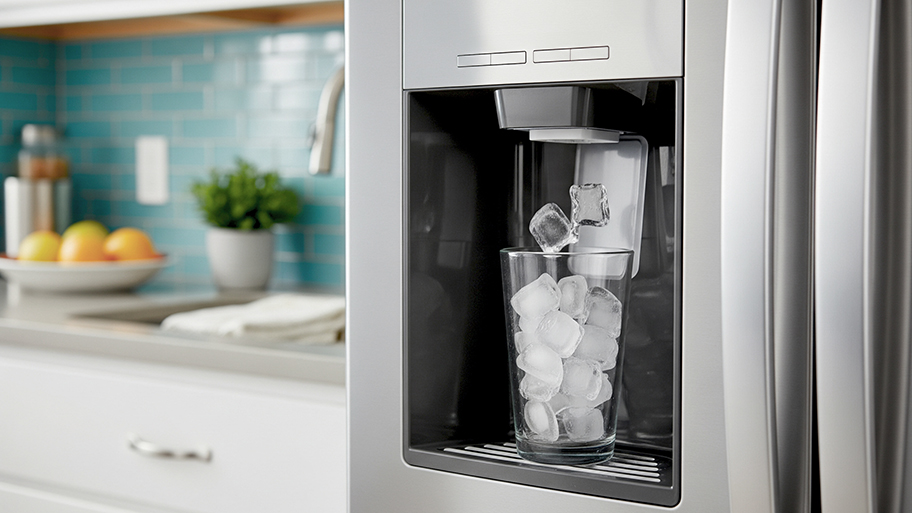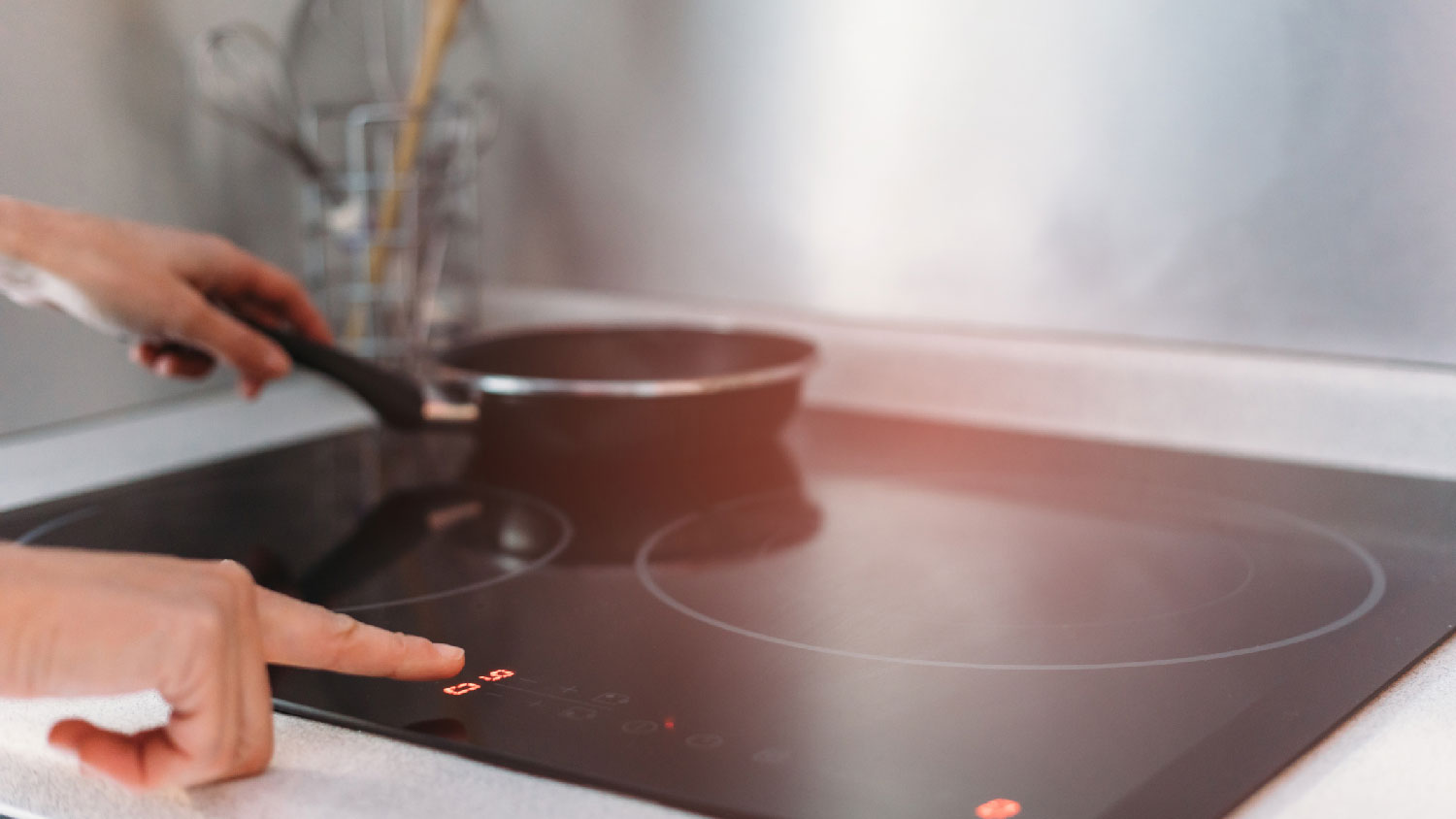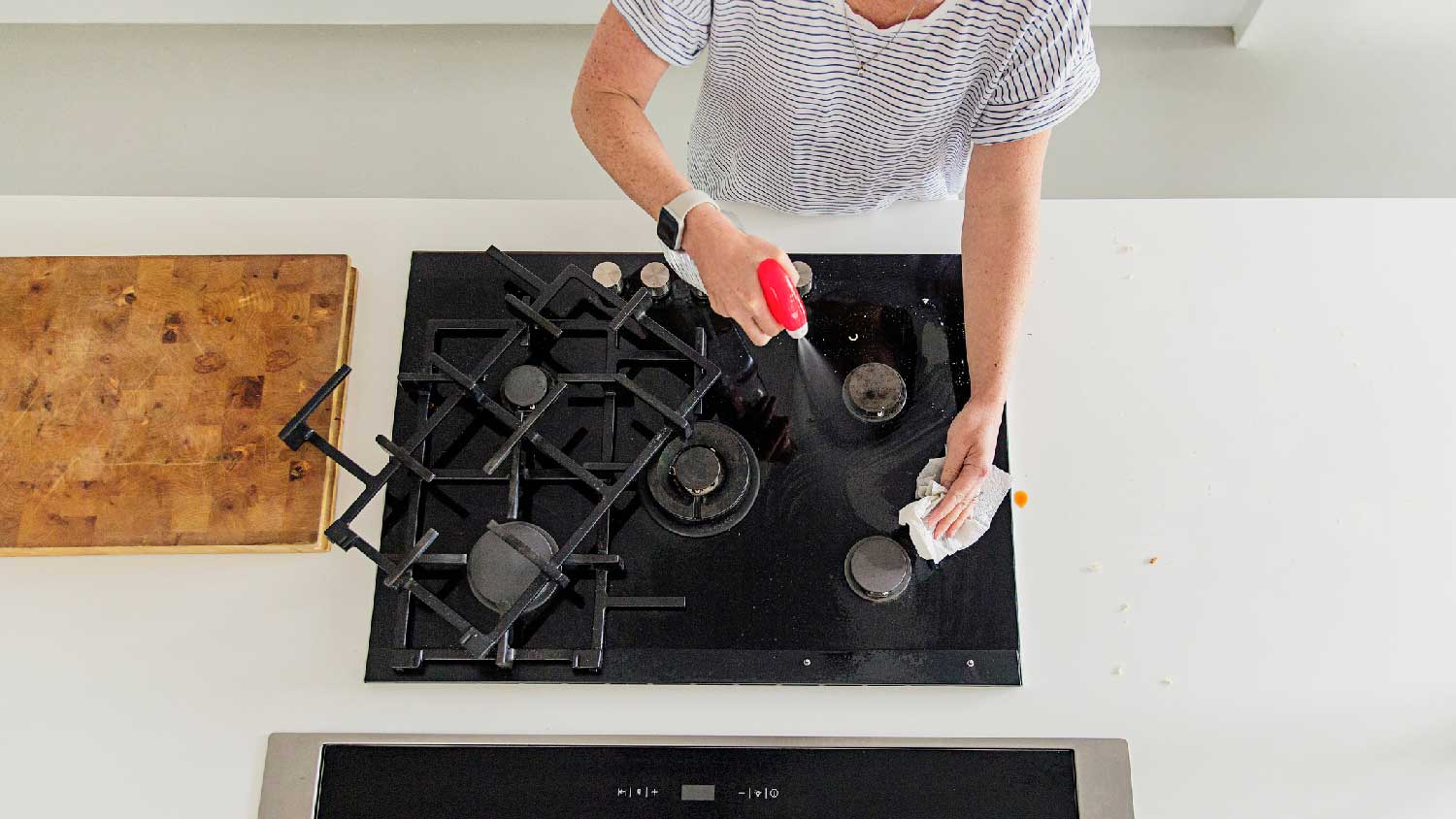
Discover the average ice maker repair cost, key price factors, and tips to save. Learn how to budget for your ice maker repair and when to repair or replace.
Now you’re cooking with gas…or electric!


Gas and electric stoves are both viable options for cooking in the kitchen.
Gas stoves are more suited to advanced chefs in the kitchen, who enjoy control over stovetop flames and temperatures.
Electric stoves are easier to clean and cheaper to install.
Choosing between gas and electric ovens depends on your budget, kitchen needs, and aesthetic.
Buying a new stove can be exciting, whether it’s part of a major kitchen renovation or your old model is simply on its last legs. But it’s also a complicated choice: You’ll need to consider your cooking needs, your kitchen’s aesthetic, and your budget. Before selecting a brand or style you like, however, you’ll need to make one very important decision: gas vs. electric stove.
Below, we’ll review the differences between gas and electric ovens and stovetops — and cover the advantages of each.
Gas stoves are more expensive to install but offer more control over most cooking experiences. They also heat up and cool down faster and are cheaper to operate. Electric stoves are more affordable upfront, are ideal for baking, and are easier to clean.

A gas stove is a kitchen appliance that uses an open flame to cook food on the cooktop and inside the oven. It requires a gas line readily available in the kitchen and runs on natural gas or propane.
When cooking with gas, you’ll have more control over the heat level on the stovetop. You can quickly raise or lower the heat level by adjusting the flame size.
| Pros | Cons |
|---|---|
| Fast and adjustable heat | Toxic fumes released during operation |
| Lower energy costs | Expensive to install |
| Ability to use it when power is out | Difficult to clean |
| Faster preheat, boiling, and cooldown | Not ideal for beginners in the kitchen |
Best for:
More experienced chefs
Charring, grilling, and boiling
Kitchens with existing gas hookup
Gas stoves offer several key advantages that may lead you to wonder if you should convert your electric stove to gas, particularly if you’re more advanced in the kitchen. Among those advantages are:
Fast and adjustable heat: When cooking on the stovetop, it’s easy to adjust the flame size and thus the resulting heat. Whether you’re charring or grilling a dish directly on the burner, are cooking with a griddle or Dutch oven, or simply want more control over how fast food is cooking, a gas grill comes in handy.
Lower energy costs: Though this can vary, natural gas is more affordable than electricity. This means preparing a meal with a gas stove or oven is cheaper than it would be with an electric range.
Ability to use it when the power is out: During power outages, you can still use your gas stove — as long as you can manually light the burner (safely with a long-reach lighter).
Faster preheat, boiling, and cooldown: With gas, your oven will preheat faster, water on the cooktop will boil faster, and the entire appliance will cool down much faster when everything is done.
Gas stoves do have a number of drawbacks to consider, including:
Toxic fumes released during operation: Gas stove emissions lead to poor indoor air quality because of the toxic fumes released. Not only are there health hazards linked to gas stoves, but you also run the risk of your carbon monoxide detector throwing a fit every time you fire up the stovetop.
Expensive to install: The cost to install a gas stove runs between $300 and $1,000, which is more than electric stove installation. Why the higher cost? Many kitchens aren’t outfitted with a gas hookup, meaning you may need to hire a local gas plumber to install a gas line.
Difficult to clean: Electric stovetops have a nice, flat, smooth surface, which makes them easy to clean. Gas stoves, on the other hand, have cooking grates that you’ll need to remove to clean beneath. The grates themselves can also get dirty.
Not ideal for beginners in the kitchen: Gas stoves offer experienced chefs a lot more flexibility when cooking, but they can be intimidating to novices. If you’re new to cooking, you might find yourself burning food more easily, and you may struggle to get consistent temperatures from day to day. It takes time for a good chef to “get to know” their gas stove.

An electric stove is a kitchen appliance with a flat cooktop that uses electricity for both cooking and baking. These ranges use metal heating elements that transfer the heat through metal coils to the cookware itself. Electric ranges are more accessible to beginners in the kitchen and are easier to clean.
| Pros | Cons |
|---|---|
| Consistent oven temperatures | Less responsive stovetop |
| Easier to clean | Slower preheating and cooldown |
| Safer to use | More expensive to operate |
| More affordable to install | Can’t be used during power outages |
Best for:
Beginners in the kitchen
Remodelers on a budget
Baking
Electric ranges offer several advantages, such as:
Consistent oven temperatures: Electric ovens are ideal for baking because they can maintain a consistent temperature more easily than gas ovens. The heat inside an electric oven is a nice dry heat.
Easier to clean: Because of the flat ceramic-glass surface, electric stoves are easier to clean than gas ranges. Electric ovens have a self-cleaning feature as well.
Safer to use: Electric stoves can still be dangerous—they deal with high heat—but they don’t work with an actual open flame, releasing harmful fumes into the air.
More affordable to install: Because most kitchens already have a 240-volt outlet for an electric oven, installation is quick and easy. You may even be able to install it yourself.
That said, electric stoves do have some disadvantages to be aware of, including:
Less responsive stovetop: When you change the temperature on one of the burners, it takes longer for it to heat up or cool down on an electric cooktop. This slower change in temp can be limiting when working with some more complex recipes.
Slower preheating and cooldown: You’ll also have to wait longer for your electric oven to preheat. Electric ovens and stovetops generally take longer to cool down.
More expensive to operate: The in-store cost of an electric stove is likely lower than a gas stove, and installing one is more affordable because you don’t have to worry about the cost to install a gas line. However, electricity is generally more expensive than natural gas, so operating costs for electric stoves can be higher.
Can’t use during power outages: If you’re ever without power, you won’t be able to cook with your electric stove (and your microwave, toaster, slow cooker, air fryer, and other powered appliances will also be useless). This means you’ll have to eat cold meals until your power comes back on.

Still unsure if a gas stove or electric stove is right for you? Much of it comes down to your budget and cooking preferences. Here’s a deeper dive into the key differences between gas and electric ovens to help.
The cost to hire a trusted appliance installer near you to install an electric stove is notably lower than it would be to hire someone to install a gas stove. Why? Most kitchens are already set up with the necessary 240-volt outlet for an electric stove, but they may not be set up with a gas line for a gas stove.
In fact, if your kitchen is already equipped with the right outlet, you may be able to install the electric stove yourself. On the flip side, you’ll need to hire a local plumber to run a gas line for a gas stove if your kitchen is not already outfitted with a gas hookup.
Though the appliance installation cost may be lower for an electric stove, gas stoves are cheaper to operate. That means your upfront costs will be higher with a gas stove, but over time, you can expect to save on utility bills.
Because they tend to have flat, smooth, glass surfaces, electric stoves are generally easier to clean than gas stovetops, which have large grates that allow food particles and grease to drop below while cooking. If you’re worried about cleaning, look for a gas stovetop with dishwasher-safe grates and a self-cleaning oven component. Just be careful with those glass stovetops. The average glass stovetop replacement cost runs between $350 and $600.
Beyond cleaning, electric stoves don’t need much maintenance. However, you’ll need to call a technician if your electric stove stops working — trying to fix issues yourself could void a warranty.
Gas ovens preheat much faster than electric ovens, and the cooktops are also much faster at boiling water. On top of that, gas stoves can cool down much faster, ideal if you want to sear something and then cook at a more gradual pace.
On the flip side, electric ovens are better at maintaining a consistent oven temperature with minimal fluctuations. This is really important in baking, which is more scientific and requires consistent temps.
A gas stovetop offers much more heat control. This is ideal if you’re a more experienced chef who uses advanced cooking techniques or even grills or chars food directly on the burners.
From average costs to expert advice, get all the answers you need to get your job done.

Discover the average ice maker repair cost, key price factors, and tips to save. Learn how to budget for your ice maker repair and when to repair or replace.

Discover the cost to install washer and dryer hookups. Learn about price factors, labor, materials, and tips to save on your laundry room project.

Microwave replacements are relatively affordable compared to other appliances. Use this guide to learn how much they cost based on factors like type and labor.

Looking for a new washer or dryer to keep your clothes fresh and clean? Learn how to choose a washer and dryer by knowing what to consider.

Dealing with a clogged dishwasher? Use this guide on how to drain a dishwasher to empty it and clear out any debris that’s causing a backup.

Did you leave the gas on? If you went out and forgot to turn off the stove, don’t panic. Instead, remain calm and follow a few basic steps.